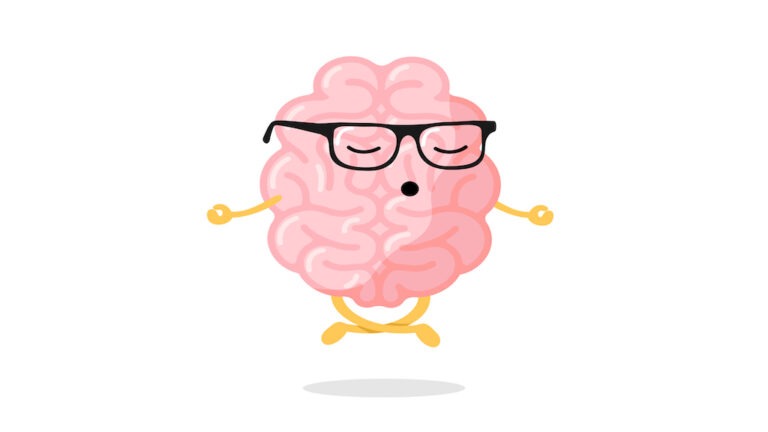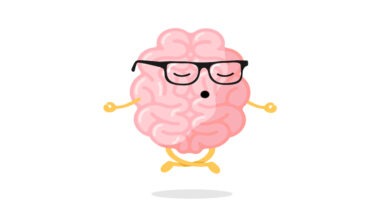6 Ways to Deal with Feeling Sad and Lost

Have you ever felt like you don’t know where to go, don’t know what to do, and don’t know how to deal with the inner feeling of too much to bear? It’s a feeling we can probably all relate to, something we’ve all experienced: the feeling of being sad and lost.
Guess what? You have been there, so what does that mean? Exactly! You overcame and “survived” it. This was just another low mood that came and left. It’s like walking underneath a scaffold–it’s a little shaky and scary to walk under, but you know there is an end to it, so you keep walking anyway. And it’s exactly the same when dealing with a low mood. You feel it, you deal with it, and it passes like any other happy or sad mood.
Oh I know, that sounds so simple but it surely isn’t like that. I’ve experienced quite a bit of rejection and even more “waiting periods” in different life situations lately. Also, particularly during the winter months when there is almost no sun and the weather is cold and gloomy, it’s very hard to catch yourself and have happy thoughts. The trick is to keep your head up in those times and to think about better days to come. Here are six strategies that help me whenever I am feeling sad or lost:
1. Acknowledge your sad thoughts and push them to the side.
This is a strategy I’ve been using for a few years now. Whenever I notice a pattern in my negative thoughts, I mentally sort them in the form of little playing cards in front of me, with my negative thoughts summed up in one word like “Rejection” or “Unworthiness,” etc. Then, I look at that card, acknowledge its existence, accept it, and put it to the side or in my imaginary “gift box.” That doesn’t mean that I avoid dealing with it, I am only saving myself from getting caught up with something that I cannot change at this moment, or from making a decision with my temporary emotion. Then, in moments of a better mood, I will take this card out and look at it again, this time from an optimistic standpoint. This usually makes me realize that this really wasn’t an actual problem I had, but rather the sad, fearful, pessimistic “everything is terrible” voice in my head speaking. Believe me, this has prevented me from making decisions too quickly that I might have regretted.
2. Allow yourself to be in a low mood.
It’s okay not to be okay. It’s part of the human condition. Sadness is part of our lives, just as much as happiness is. Interestingly, it almost seems like low moods are looked down upon, like they’re something to be ashamed of and not acceptable. As you might know, I am a big believer in positive thinking and the “Law of Attraction,” however, when I am sad, I am sad. What’s wrong with that? I have learned to be thankful for my low moods because–think about it–being in a low mood means discomfort. You’re obviously “not happy” with your current situation, perhaps because you’ve left or have even been thrown out of your comfort zone. And you know what? That’s awesome! Because that means you are growing, you are learning. Every pain you’ve ever experienced, has made you stronger or at least smarter in your future actions, right?
“The pessimist sees difficulty in every opportunity. The optimist sees the opportunity in every difficulty.” –Winston Churchill
3. Be patient and kind with yourself.
Know yourself. You most likely know when and where your low moods are coming from. Especially during the cold winter months, the weather can be a big factor, the missing sunlight, perhaps a hormonal imbalance, nutritional lack, insufficient sleep… you name it. The majority of the time your low mood is actually not “caused” by a circumstance or situation. It’s the way you cope and deal with it. When you’re in a happy mood or when you can think clearly, draft a contract with yourself for times of low moods. This will confirm your decisions and will give you strength to carry on in low moods or in times of doubt, as well as prevent you from committing, as Richard Carlson called it, “emotional suicide.” So, if you want to cry, then cry! Crying will help you let go of painful thoughts and also clear your mind. Remind yourself that it will all be okay. Like Jonathan Lockwood Huie put it: “The darkest night is often the bridge to the brightest tomorrow.”
4. Don’t overthink it.
When starting to overthink: give it a laugh! Try to think of something funny or watch a funny movie. Make a list with reasons that could make you sad, like the weather, a current waiting period, no vacation time, job pressure, a conflict with someone, big changes ahead, or whatever it is. Again, acknowledge them and accept them for what they are: sad thoughts. Then, remind yourself, that you are in control over your thoughts. And you’ve just busted them! Now, it’s actually easy to grab them and put them into their places. Remember that overthinking truly ruins the situation. It can even go so far as to make you stop believing in the good and start believing your doubts and negative thoughts, or even manipulate it to the outcome you feared the most. Remember, Mr. or Ms. Doubt are not your friends. So, when I catch myself overthinking, I smile and say: this is typical you. You’ve been here before. You’ve experienced this mood before, and it left as quickly as it came. It’s seriously like my mom’s glasses that she is almost always looking for and almost always finds on her head, pushed over her forehead when she didn’t use them. Same goes with our happiness. It’s always there, only sometimes we forget where to find it.
5. Be grateful and forgive.
I strongly believe that gratitude, optimism, and the ability to think less and feel more has helped me to deal with any kind of struggles, unkind people, and lonely moments. It has helped me to see not getting jobs, facing challenges, or lost relationships as blessings and teachers that have actually led me to exactly where I am today. The puzzle pieces can only be put together in hindsight and that’s what makes life so incredibly exciting. Imagine all the great things that will unfold when you’ve been through another storm. You might come out of it with a scar, but this is only another thing that makes you unique. It adds a little “trophy” of another challenge you overcame or battle you’ve won or survived in your story. It’s really so powerful when you’ve reached the point where you truly understand and live the power of your thoughts. As Bob Green once said: “The body achieves what the mind believes.” I cannot tell you how often I told myself this in moments when I felt lost. Remind yourself that you are the creator of your own reality.
6. Take action.
I’ve learned that, whenever you feel lost or stuck, the only way to get out of this is action. Or as Cheryl Strayed put it: “The only way out of a hole is to climb out.”
So get active! Start working on your goal or on something that can change the situation you are in. If you’re trying to find a job and you feel like you’re stuck because you’re waiting for responses, then shoot some more stars into the sky by applying to more jobs, volunteer, get creative, start painting, dancing, writing, singing, or whatever it is that helps you get your emotions out and organize your thoughts. My lowest points have always brought positive changes in my life so far. Without them, I would have never started my Yogilation page and never had the courage to write and share it with others. I would’ve never pushed further by asking questions and simply starting to share my experience. Same goes for rejection. Every job rejection had brought me to my last job, made me move to a city close to home, and guided me to some people who mean a lot to me today. So, find a purpose in your low mood, not a cause. Make the best of it and use it as your chance to get inspired and to inspire other people. You will not only feel inspired, you will also feel motivated and needed. That’s something money cannot buy!
Can Mindfulness and a Psychology Class Make You Happier?

By studying the effects of mindfulness on psychiatric patients, and the pursuit of happiness, can we teach ourselves how to be happier?
The term mindfulness has entered popular culture in recent years, but this ancient Buddhist practice actually began gaining acceptance in western medicine in the 1970s.
The three main tenets of mindfulness are:
- Intention to cultivate awareness
- Attention to what is occurring in the present moment
- An attitude that is non-judgmental
In a recent article for psychiatric times, researchers looked at how mindfulness-based treatments work for psychiatric patients, and how these therapies can enhance and even replace pharmaceutical interventions. They found a wealth of evidence that mindfulness-based therapies have overwhelmingly positive effects on patients.
With mindfulness-based cognitive therapy reducing the rate of relapse rates for patients with major depression similar to that of pharmaceuticals, they also showed reduced anxiety, depression, and increased cognition.
The researchers point out, however, that, “Despite this evidence, pharmacotherapy remains the main treatment option for many patients with mental disorders, although about 75 percent of patients with mental disorders prefer psychotherapy. Researchers recommend implementing mindfulness-based therapies in place of, or in concert with, pharmacotherapy especially as the population grows older and cognitive issues become more common.





































